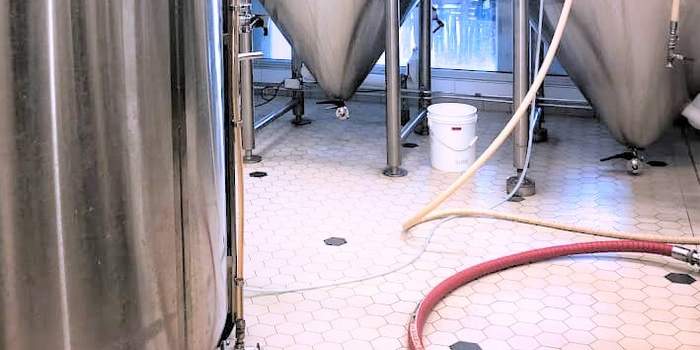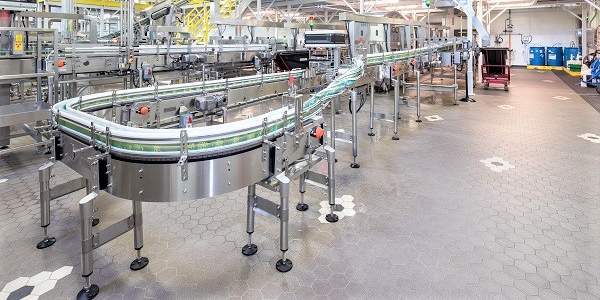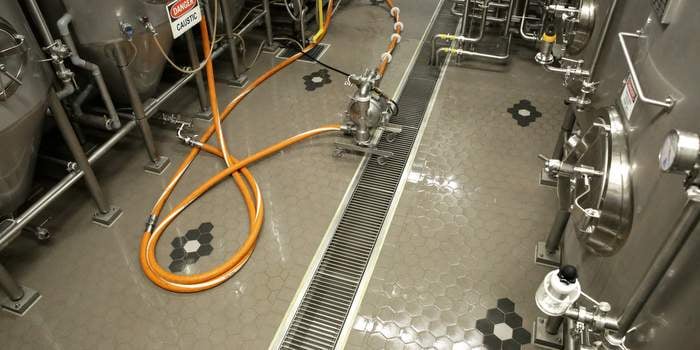
Putting a craft brewery in an historic building comes with some tough construction challenges, especially when it comes to the floor. Hopewell Brewing Co.’s signature bright, inviting beers are brewed in the back of an historical building in Chicago’s Logan Square neighborhood.
When choosing their brewery floor, Hopewell’s founders had some unique restrictions. The space for their brewing equipment is tight, so there was no room for error. The building has a basement, so a trench drain was impossible — the floor would have to be pitched to four pinpoint drains.
And with a floor-to-ceiling window allowing taproom visitors to look right in on the brewhouse, everything had to look as good as possible for as long as possible.
“It’s part of the whole customer experience here,” co-owner Stephen Bossu said. “We chose light-colored tile because it’s important that when the customers look in here at where the beer is made, everything always looks bright and clean.”
In addition, Bossu and his co-founders, Samantha Lee and Jonathan Fritz, faced the challenges all brewers face: The floor had to be strong enough to support heavy brewing equipment, hard enough to withstand pallet jack traffic and dropped kegs and hygienic enough for beverage production. Brewing involves heavy water exposure and a lot of corrosive chemicals, so the floor also had to be chemical resistant and nonabsorbent. After researching their options, the brewers found Hexalith hexagon-shaped fully vitrified tile by Argelith Ceramic Tile checked all the boxes.
Fully vitrified tile is unglazed and chemical resistant. The tiles are uniformly dense from top to bottom, resulting in an absorption rate of less than 0.1 percent. This ability to shrug off moisture makes the tile stain resistant and ideal for the wet conditions of a brewery.
“We get a lot of high heat, steam, a lot of chemical use and a lot of organic solids and soil [on the floor],” Bossu said. “We needed something like Argelith tile that was super inert and could also take a beating. It was ideal for what we needed.”
Beer is acidic and can eat through brewery flooring. But ceramic is inert and doesn’t react with acids or caustic solutions. The tiles maintain their strength and low absorption rate even after repeated exposure to spills. Ceramic also does not harbor mold or bacteria, making the floor hygienic and easy to clean. And because it heats and cools slowly and evenly, it can handle the high temperatures and steam a brewery produces without buckling or cracking.
With the tight layout and the four pinpoint drains, Bossu said there were not a lot of configuration options. The flooring contractor split the floor into four quadrants, each sloping toward a drain. The tiles’ hexagonal shape allowed the installers to create smooth slopes exactly where they were needed.
“The installers were great. They were some of the best tradespeople we had around [in construction],” Bossu said.
Argelith has been manufacturing heavy-duty ceramic tiles for industries since 1870. Its Hexalith tiles can be found in more than half of the Brewer’s Association’s 2018 Top 25 Brewing Companies in the United States. The tiles can also be found in some of the world’s top dairies and packaged food and beverage manufacturers.






Leave a Reply
You must be logged in to post a comment.